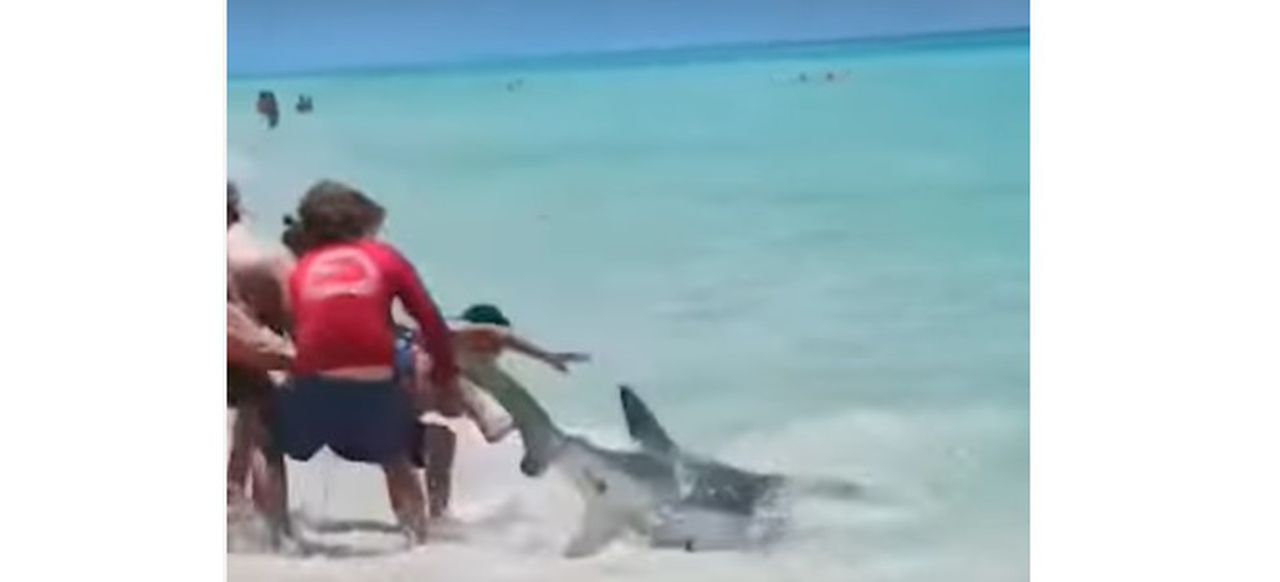Fishing for sharks off the beach? Expert urges caution
In March, a juvenile Great White shark was caught by shore fishermen on Orange Beach, believed to be the first of its kind caught off an Alabama beach, generating a lot of attention for on-shore shark fishing.
This past weekend, a video posted to Facebook showing a shark caught and dragged onto Panama City Beach caused a stir, including hundreds of comments which ranged from bemusement to concern for the shark’s well-being.
Others questioned the wisdom of fishing off a public beach where swimmers are present.
Dr. Sean Powers says shark fishing off the beach is fine and isn’t likely to bring more sharks in near shore.
“I’m not sure (fishing) would bring any more sharks than were already there,” said Powers, chairman and director of University of South Alabama’s School of Marine and & Environmental Sciences.
“It might concentrate them in a smaller area, but if you’re catching blacktips and some others, they’re already around.”
But, Powers said, there are dangers — mostly to the fishermen.
“There are some things people get in trouble with,” he said.
“A lot of the shark bites, the ones we call ‘test’ bites – sharks aren’t trying to eat people, they’re just trying to eat. So a lot of sharks, if they don’t see something, they’ll test bite. The problem starts with fishermen who wade out and are using chum near shore. Yes, that attracts sharks, but it also causes them to bite indiscriminately, trying everything.
“Humans don’t taste very good to a shark. They’re expecting a rich, fatty fish.”
Alabama has a 15-year-old prohibition on chumming near shore, but there are still reports of it happening, according to the Alabama Department of Conservation and Natural Resources.
Scott Bannon with the Marine Resources Division told AL.com in March it typically is simply a matter of educating anglers on the regulations.
“Once we educate an angler (that they should not chum near a shoreline), it is not an issue,” Bannon said. ”People are very understanding.”
Other problems can arise once a shark is caught and pulled onto the beach, mainly in the form of people wanting photos with the shark.
“They like to sit on the back of them, grab the snout and try to expose the jaw,” Power said. “That’s a really bad idea. It’s a good way to get bitten. And if little kids start coming around to do that or to see the shark, there’s a good chance they’ll get bit.”
It’s better — and safer — if the shark isn’t dragged onto shore the first place, Powers said.
It’s best if the shark is brought into shallow water, where there’s enough water that it flows over the gills.
“Don’t manipulate the shark or do something stupid. That’s a recipe for losing a finger.”
If done safely, and within state and federal regulations, shore fishing for sharks poses little threat to humans and doesn’t have a negative impact on the ecosystem.
“We do a lot of research on making sure that if you’re fishing within the regulations, there’s no harm to the ecosystem,” Powers said.
“People should have faith in the science and the fisheries managers that, if within the regulations, shark fishing is fine.”
Powers noted the popularity of shore shark fishing has exploded in Texas and seems to be growing in Florida, as well.
He also noted that to fish for sharks off a Florida requires a special endorsement on the state fishing license.
There’s no cost for the endorsement, he said, it’s simply to allow officials to track the numbers. There’s currently no such requirement in Alabama.
He also added one more safety tip for shark fishermen.
“If people are having problems getting the hook out of the shark’s mouth, just cut the line,” Powers said. “Don’t get your hand too close to the shark’s mouth. Those hooks will disintegrate in a few weeks.”
Even if fishermen are using a stainless steel hook, which is prohibited under Alabama law, “the shark will adjust to having the hook there easier than you’ll adjust to not having a hand.”
